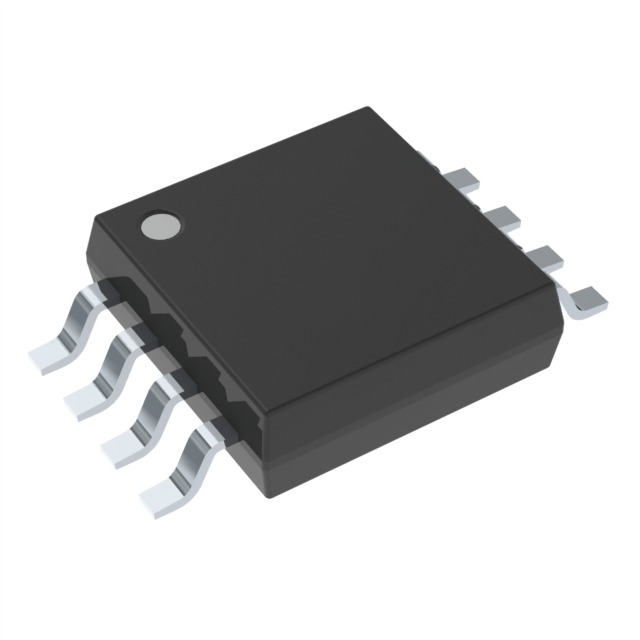DS1088LU-16+T
Overview
Category
DS1088LU-16+T belongs to the category of electronic components.
Use
It is commonly used in electronic circuits for frequency synthesis and clock generation.
Characteristics
- Package: TSSOP-16
- Essence: PLL-based frequency synthesizer
- Packaging/Quantity: Tape & Reel, 2500 units per reel
Specifications and Parameters
- Frequency Range: 1MHz to 200MHz
- Supply Voltage: 2.7V to 5.5V
- Output Format: LVCMOS
- Operating Temperature Range: -40°C to +85°C
Pin Configuration
The pin configuration of DS1088LU-16+T is as follows:
| Pin Number | Pin Name | Description | |------------|----------|-------------| | 1 | VDD | Power supply voltage input | | 2 | GND | Ground | | 3 | XIN | Crystal oscillator input | | 4 | XOUT | Crystal oscillator output | | 5 | NC | No connection | | 6 | CLK | Clock output | | 7 | SDA | Serial data input/output | | 8 | SCL | Serial clock input |
Functional Characteristics
- Frequency synthesis using a Phase-Locked Loop (PLL)
- Programmable output frequency
- Low jitter and phase noise
- Integrated crystal oscillator circuitry
- I2C interface for configuration and control
Advantages and Disadvantages
Advantages
- Wide frequency range
- Low power consumption
- Small package size
- Easy integration into electronic circuits
- Flexible configuration options
Disadvantages
- Limited output formats (only LVCMOS)
- Requires an external crystal oscillator
Applicable Range of Products
DS1088LU-16+T is suitable for various applications that require precise clock generation and frequency synthesis. It can be used in communication systems, consumer electronics, industrial equipment, and more.
Working Principles
The DS1088LU-16+T operates based on the principle of phase-locked loop (PLL) frequency synthesis. It takes an input reference frequency and generates a stable output clock signal with programmable frequency and low jitter.
Detailed Application Field Plans
- Communication Systems: Use DS1088LU-16+T to generate clock signals for data transmission and synchronization in wireless communication systems.
- Consumer Electronics: Incorporate DS1088LU-16+T into audio/video devices for accurate timing and synchronization of multimedia content.
- Industrial Equipment: Utilize DS1088LU-16+T in industrial automation systems for precise timing and synchronization of control signals.
- Automotive Electronics: Integrate DS1088LU-16+T into automotive systems for reliable clock generation in navigation, infotainment, and driver assistance systems.
- Medical Devices: Employ DS1088LU-16+T in medical equipment for accurate timing and synchronization of diagnostic and therapeutic processes.
Detailed Alternative Models
- DS1088LU-16: Similar to DS1088LU-16+T but without tape & reel packaging.
- DS1088LU-08+T: A variant with a lower frequency range of 1MHz to 100MHz.
- DS1088LU-24+T: A higher-performance version with extended temperature range (-40°C to +105°C).
5 Common Technical Questions and Answers
Q: What is the maximum output frequency of DS1088LU-16+T? A: The maximum output frequency is 200MHz.
Q: Can DS1088LU-16+T operate with a supply voltage below 2.7V? A: No, the minimum supply voltage is 2.7V.
Q: Is DS1088LU-16+T compatible with LVDS output format? A: No, it only supports LVCMOS output format.
Q: Can I program the output frequency of DS1088LU-16+T on-the-fly? A: Yes, the output frequency can be programmed via the I2C interface while the device is operating.
Q: Does DS1088LU-16+T require an external crystal oscillator? A: Yes, an external crystal oscillator is required for proper operation.
This concludes the encyclopedia entry for DS1088LU-16+T.
Word count: 638


